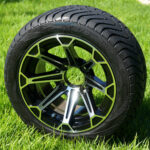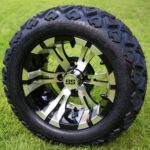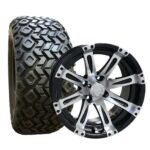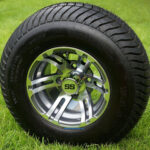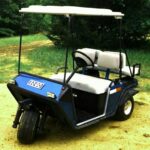Golf cart wheels are an essential component of any golf cart, affecting performance, safety, and aesthetics. Understanding the different types, sizes, and maintenance requirements of golf cart wheels is crucial for ensuring a smooth and enjoyable ride. This comprehensive guide will delve into the intricacies of golf cart wheels, providing valuable insights and practical advice for golfers and enthusiasts alike.
From exploring the pros and cons of aluminum, steel, and plastic wheels to discussing the impact of tread patterns on traction and handling, this guide covers all aspects of golf cart wheels. It also emphasizes the importance of proper wheel alignment and maintenance for optimal performance and safety, while showcasing examples of customized golf cart wheels that enhance both aesthetics and functionality.
Wheel Types and Materials
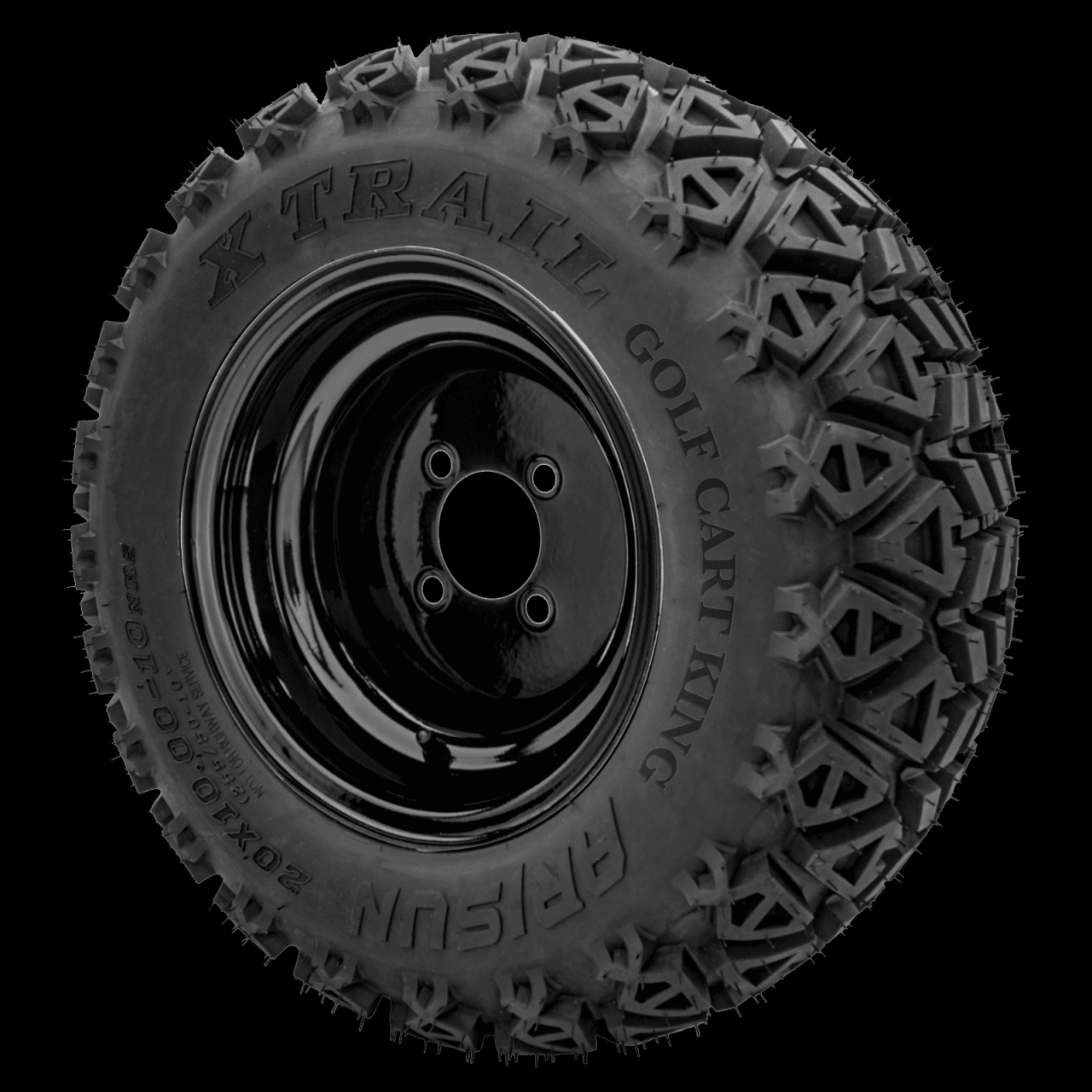
Golf cart wheels come in a variety of types and materials, each with its own advantages and disadvantages. The most common types of wheels are aluminum, steel, and plastic.
Aluminum Wheels
Aluminum wheels are lightweight and durable, making them a popular choice for golf carts. They are also resistant to corrosion, which makes them ideal for use in wet or humid climates. However, aluminum wheels can be more expensive than other types of wheels.
Steel Wheels, Golf cart wheels
Steel wheels are heavier than aluminum wheels, but they are also more durable. They are also less expensive than aluminum wheels. However, steel wheels can rust, which can make them unsightly and reduce their lifespan.
Golf cart wheels are a crucial component of the overall performance and functionality of a golf cart. These wheels play a significant role in providing stability, traction, and durability on various terrains. The choice of wheels can impact the ride quality, handling, and overall longevity of the golf cart.
Understanding the different types of golf cart wheels available and their suitability for specific applications is essential for golf cart owners and enthusiasts.
Plastic Wheels
Plastic wheels are the least expensive type of golf cart wheels. They are also lightweight and durable. However, plastic wheels can be more easily damaged than aluminum or steel wheels.
Wheel Sizes and Tread Patterns
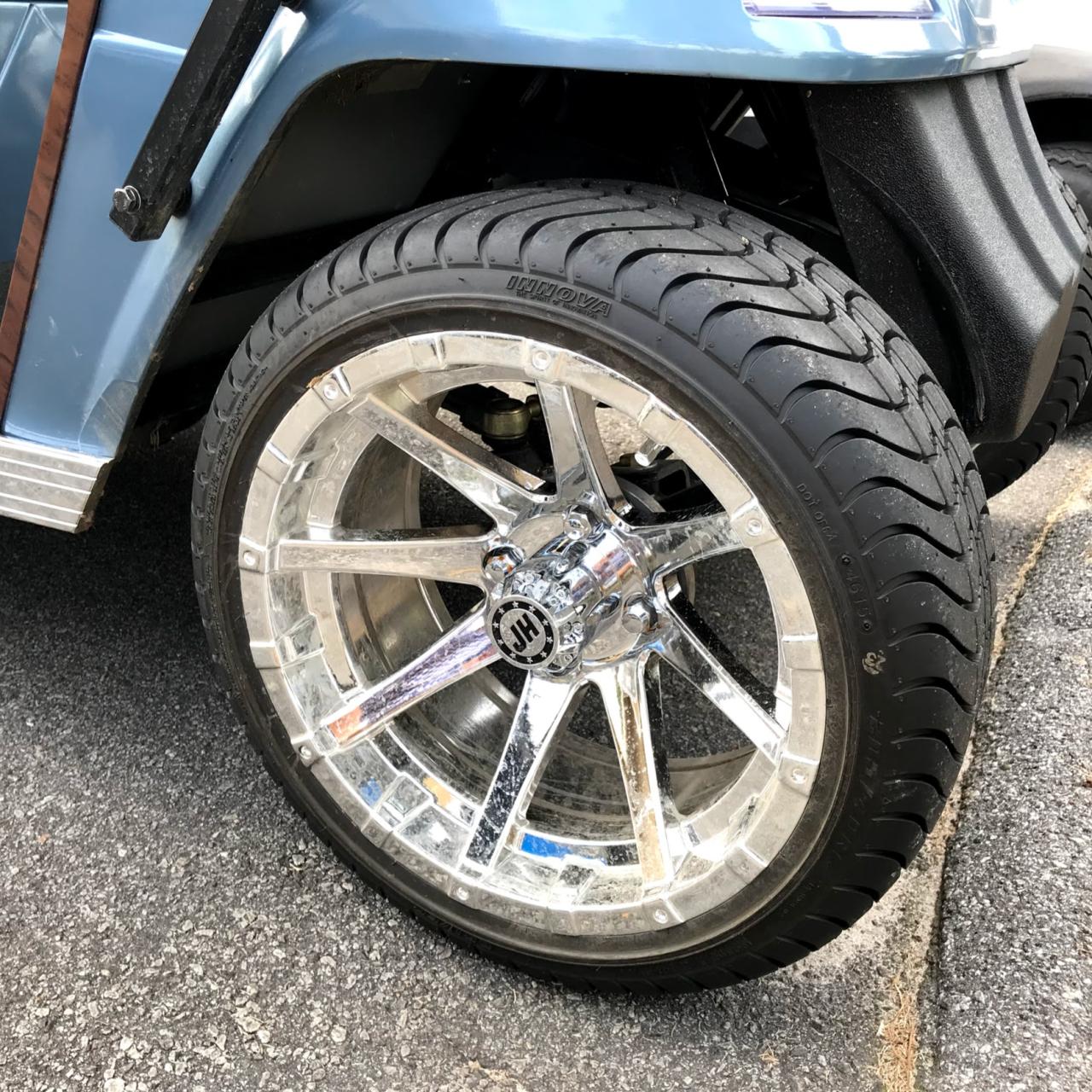
Golf cart wheels come in a range of sizes, typically from 8 inches to 16 inches in diameter. The choice of wheel size depends on factors such as the type of terrain the cart will be used on, the weight of the cart and its occupants, and the desired level of stability and handling. Larger wheels provide greater stability and can handle rougher terrain, while smaller wheels are more compact and easier to maneuver in tight spaces.
Tread patterns on golf cart tires play a crucial role in traction and handling. Different tread patterns are designed to provide optimal performance on specific surfaces. For example, tires with deep, aggressive treads are suitable for rough terrain, as they provide better grip and stability. On the other hand, tires with shallower treads are more suited for smooth surfaces, as they offer less rolling resistance and provide a smoother ride.
Wheel Size Considerations
- Terrain: The type of terrain the golf cart will be used on should be considered when choosing the wheel size. Larger wheels are better suited for rough terrain, while smaller wheels are more suitable for smooth surfaces.
- Weight: The weight of the golf cart and its occupants should also be taken into account. Larger wheels can handle heavier loads more effectively.
- Stability: Larger wheels provide greater stability, making them a good choice for carts that will be used on uneven or hilly terrain.
- Handling: Smaller wheels are easier to maneuver in tight spaces and provide a more agile handling experience.
Tread Pattern Considerations
- Terrain: The tread pattern should be chosen based on the type of terrain the golf cart will be used on. Aggressive tread patterns provide better traction on rough terrain, while shallower tread patterns are more suitable for smooth surfaces.
- Traction: Aggressive tread patterns provide better traction, which is important for climbing hills or navigating slippery surfaces.
- Handling: Shallower tread patterns offer less rolling resistance, resulting in a smoother ride and better handling on smooth surfaces.
- Noise: Aggressive tread patterns can generate more noise than shallower tread patterns.
Wheel Alignment and Maintenance
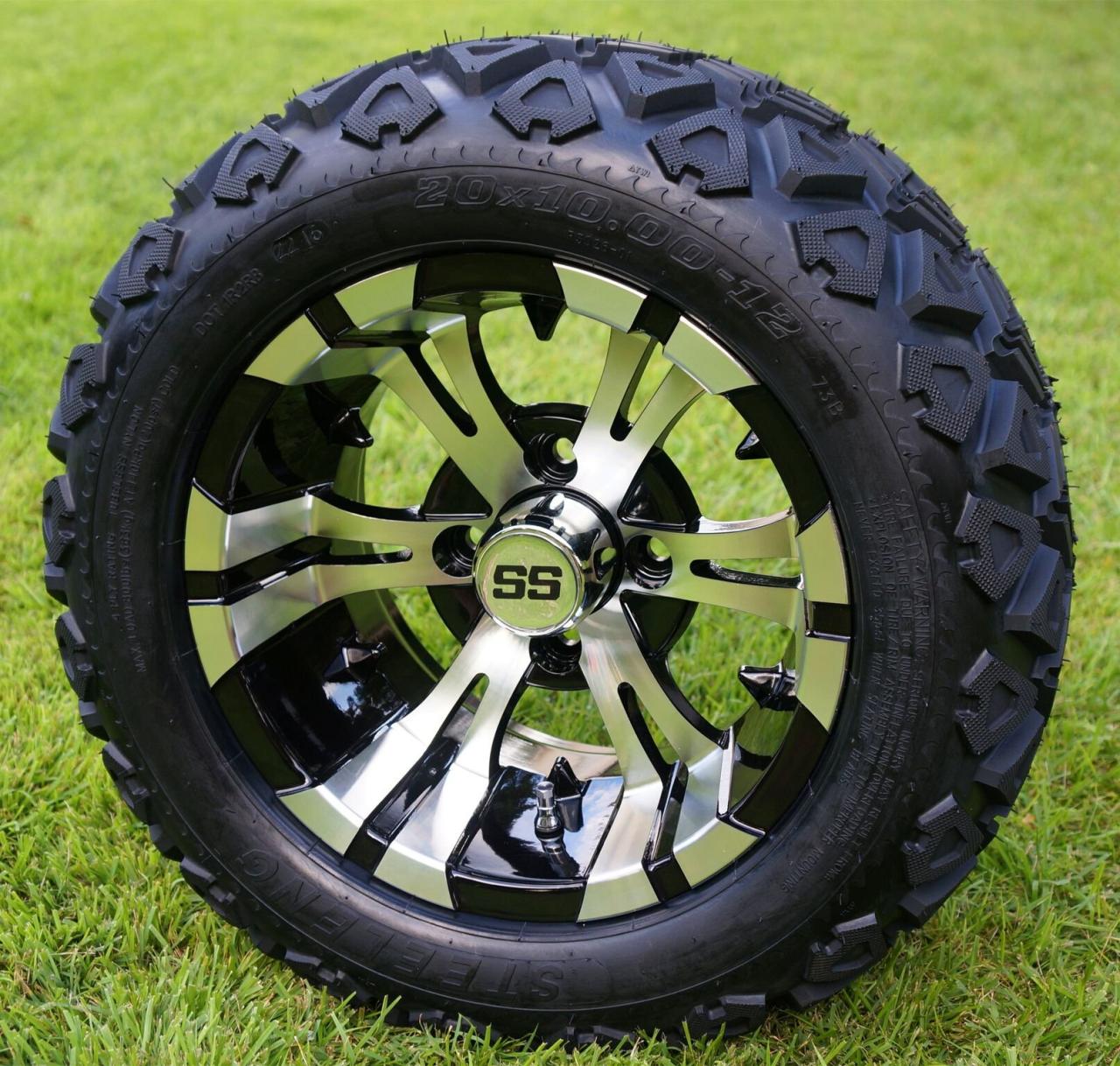
Proper wheel alignment and maintenance are crucial for optimal performance, safety, and longevity of golf carts. Regular inspections and adjustments ensure that wheels are properly aligned, minimizing wear and tear, improving handling, and enhancing overall driving experience.
Checking and Adjusting Wheel Alignment
- Visual Inspection: Observe the wheels from the front and back to check for any noticeable misalignment, such as uneven tire wear or the cart pulling to one side while driving.
- String Alignment: Stretch a string across the front and rear wheels on both sides. Measure the distance between the string and the tire at several points along the tread. If the measurements vary significantly, it indicates misalignment.
- Alignment Equipment: Use a dedicated golf cart alignment tool or take the cart to a qualified technician for professional alignment. These tools provide precise measurements and adjustments.
Importance of Proper Wheel Alignment
- Improved Handling: Proper alignment ensures that the wheels roll smoothly and evenly, resulting in better steering control and stability.
- Reduced Tire Wear: Misalignment causes uneven tire wear, leading to premature replacement and increased maintenance costs.
- Enhanced Safety: Correct wheel alignment improves braking performance and reduces the risk of accidents caused by unstable handling.
Common Wheel Maintenance Practices
- Tire Pressure: Regularly check and adjust tire pressure according to the manufacturer’s specifications. Under or over-inflated tires can affect alignment and handling.
- Wheel Cleaning: Clean the wheels and tires to remove dirt, debris, and brake dust. This helps prevent corrosion and ensures optimal performance.
- Bearing Inspection: Inspect the wheel bearings for any signs of wear or damage. Replace worn bearings promptly to avoid potential wheel failure.
- Wheel Lubrication: Lubricate the wheel bearings and other moving parts as per the manufacturer’s recommendations. This reduces friction and prolongs component life.
Wheel Customization
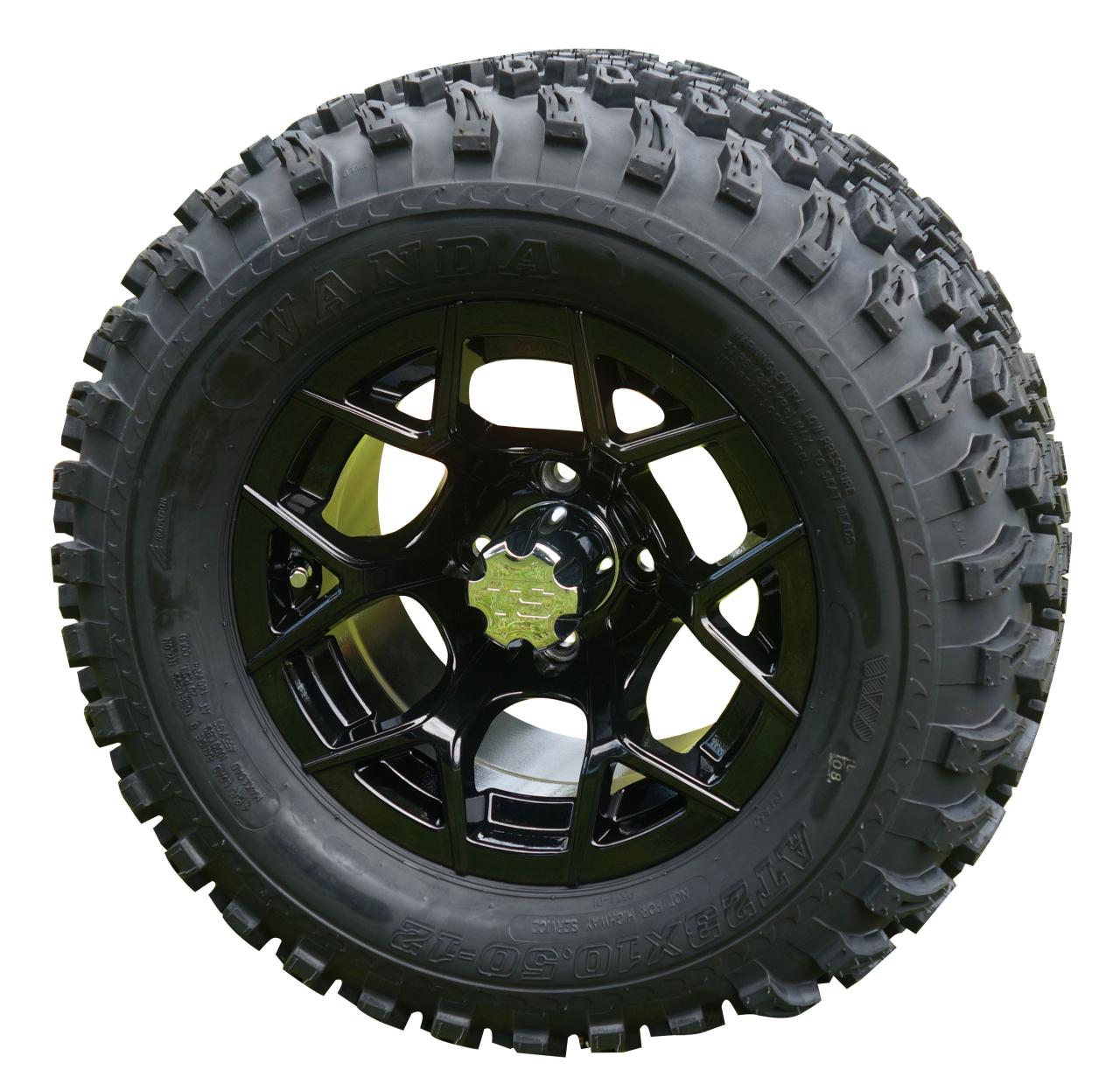
Golf cart wheels offer ample opportunities for customization, allowing golfers to express their personal style and enhance the aesthetics of their vehicles. From vibrant colors to intricate graphics and accessories, there are countless ways to personalize golf cart wheels.
Color Options
Golf cart wheels come in a wide range of colors, from classic black and white to eye-catching hues like red, blue, and yellow. Custom paint jobs can transform the look of a golf cart, making it stand out on the course.
Graphics and Decals
Graphics and decals add a personal touch to golf cart wheels. Golfers can choose from pre-designed graphics or create their own custom designs. Decals can feature logos, slogans, or even personal photos, allowing golfers to express their creativity and make their golf carts truly unique.
Accessories
Accessories such as wheel covers, spinners, and lug nuts can further enhance the appearance of golf cart wheels. Wheel covers come in various styles and materials, adding a touch of elegance or sporty flair. Spinners add a dynamic element to the wheels, rotating as the cart moves. Lug nuts with custom designs provide a subtle but stylish touch.
Performance Enhancement
Beyond aesthetics, customization can also improve the performance of golf carts. Larger wheels with wider tires provide better traction and stability, especially on uneven terrain. Custom wheel alignment can optimize the handling and ride quality of the golf cart.
Example: Custom Golf Cart Wheels with Neon Accents
One example of customized golf cart wheels is a set of neon-accented wheels. The wheels feature a glossy black finish with bright neon green accents on the spokes. The neon accents add a bold and eye-catching element to the golf cart, making it stand out on the course.
Golf cart wheels, an integral part of the vehicle, provide stability and allow for smooth movement. To enhance the riding experience, consider adding a back seat for golf cart , providing additional seating and comfort. The sturdy wheels ensure a safe and enjoyable ride, while the added back seat accommodates more passengers, making golf cart outings even more enjoyable.
Safety Considerations: Golf Cart Wheels
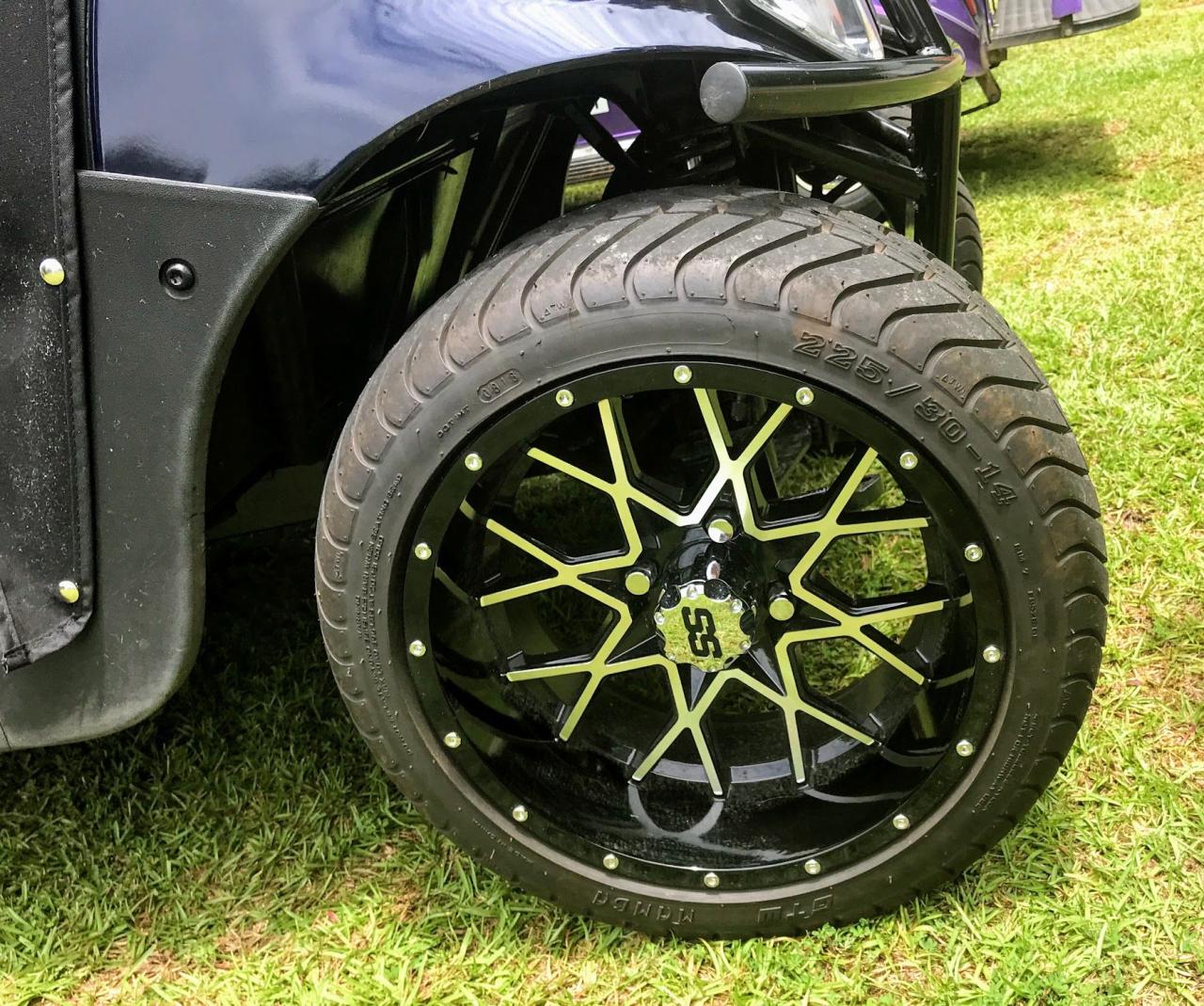
Damaged or poorly maintained golf cart wheels pose significant safety hazards that can lead to accidents and injuries. Ignoring wheel maintenance and inspection can result in sudden failures, wobbly rides, and impaired handling, compromising the safety of passengers and the driver.
To ensure optimal performance and safety, it’s crucial to use high-quality wheels designed specifically for golf carts. Substandard or damaged wheels can significantly impact the cart’s stability, handling, and braking capabilities, leading to potential hazards.
Inspecting and Replacing Golf Cart Wheels
Regularly inspecting golf cart wheels is essential for identifying potential issues and ensuring safety. Check for signs of damage, such as cracks, bends, or excessive wear. Pay attention to the tire pressure, ensuring it meets the manufacturer’s recommendations.
If any damage is detected, it’s crucial to replace the affected wheel promptly. Ignoring damaged wheels can lead to further deterioration and increase the risk of accidents. Use only high-quality replacement wheels designed for golf carts to ensure durability and safety.
End of Discussion
In conclusion, golf cart wheels play a vital role in the overall performance, safety, and appearance of golf carts. By understanding the different types, sizes, and maintenance requirements of golf cart wheels, golfers and enthusiasts can make informed decisions to enhance their riding experience. Whether you’re looking to improve traction, customize the aesthetics of your golf cart, or simply ensure its safety and reliability, this comprehensive guide provides the necessary knowledge and insights to make the most of your golf cart wheels.
